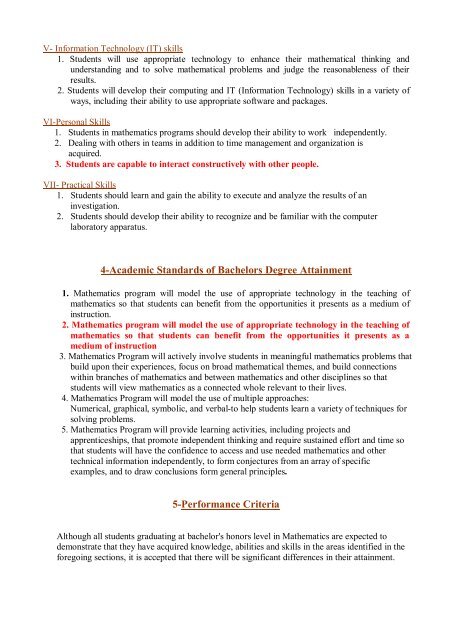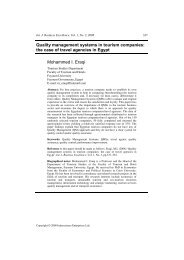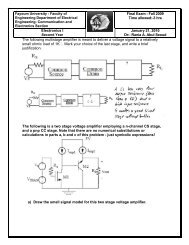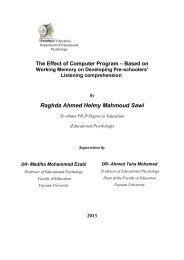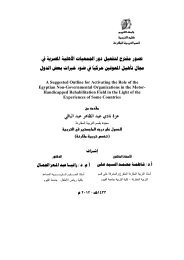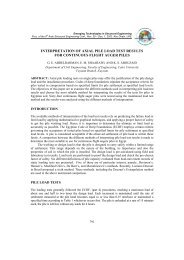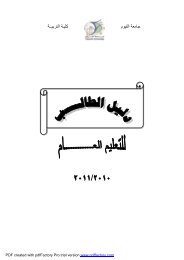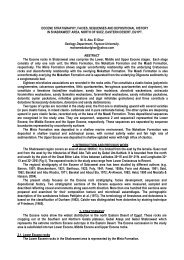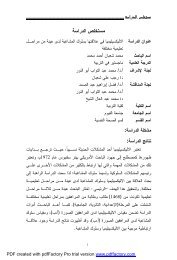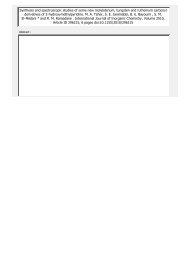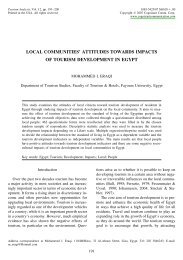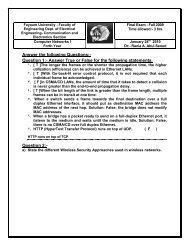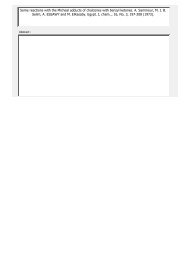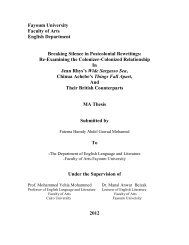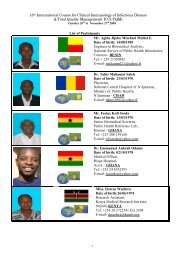National Academic Reference Standards for honors degree
National Academic Reference Standards for honors degree
National Academic Reference Standards for honors degree
You also want an ePaper? Increase the reach of your titles
YUMPU automatically turns print PDFs into web optimized ePapers that Google loves.
V- In<strong>for</strong>mation Technology (IT) skills<br />
1. Students will use appropriate technology to enhance their mathematical thinking and<br />
understanding and to solve mathematical problems and judge the reasonableness of their<br />
results.<br />
2. Students will develop their computing and IT (In<strong>for</strong>mation Technology) skills in a variety of<br />
ways, including their ability to use appropriate software and packages.<br />
VI-Personal Skills<br />
1. Students in mathematics programs should develop their ability to work independently.<br />
2. Dealing with others in teams in addition to time management and organization is<br />
acquired.<br />
3. Students are capable to interact constructively with other people.<br />
VII- Practical Skills<br />
1. Students should learn and gain the ability to execute and analyze the results of an<br />
investigation.<br />
2. Students should develop their ability to recognize and be familiar with the computer<br />
laboratory apparatus.<br />
4-<strong>Academic</strong> <strong>Standards</strong> of Bachelors Degree Attainment<br />
1. Mathematics program will model the use of appropriate technology in the teaching of<br />
mathematics so that students can benefit from the opportunities it presents as a medium of<br />
instruction.<br />
2. Mathematics program will model the use of appropriate technology in the teaching of<br />
mathematics so that students can benefit from the opportunities it presents as a<br />
medium of instruction<br />
3. Mathematics Program will actively involve students in meaningful mathematics problems that<br />
build upon their experiences, focus on broad mathematical themes, and build connections<br />
within branches of mathematics and between mathematics and other disciplines so that<br />
students will view mathematics as a connected whole relevant to their lives.<br />
4. Mathematics Program will model the use of multiple approaches:<br />
Numerical, graphical, symbolic, and verbal-to help students learn a variety of techniques <strong>for</strong><br />
solving problems.<br />
5. Mathematics Program will provide learning activities, including projects and<br />
apprenticeships, that promote independent thinking and require sustained ef<strong>for</strong>t and time so<br />
that students will have the confidence to access and use needed mathematics and other<br />
technical in<strong>for</strong>mation independently, to <strong>for</strong>m conjectures from an array of specific<br />
examples, and to draw conclusions <strong>for</strong>m general principles.<br />
5-Per<strong>for</strong>mance Criteria<br />
Although all students graduating at bachelor's <strong>honors</strong> level in Mathematics are expected to<br />
demonstrate that they have acquired knowledge, abilities and skills in the areas identified in the<br />
<strong>for</strong>egoing sections, it is accepted that there will be significant differences in their attainment.<br />
١٣


